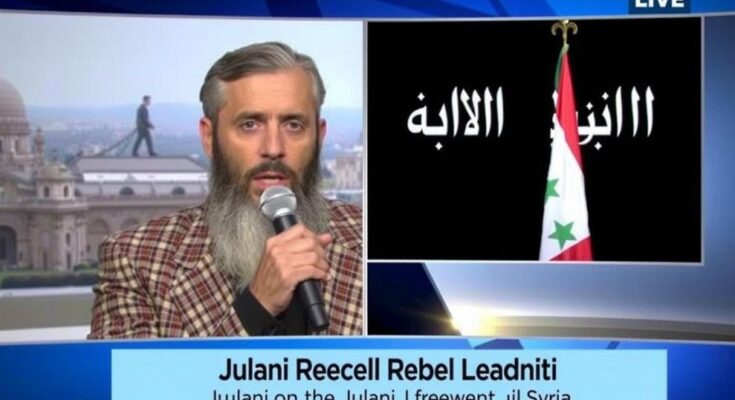Ahmad al-Julani, the leader of Hayat Tahrir al-Sham, declared in his first major interview that Israel has no justification for intervention in Syria following the exit of Iranian forces. He emphasized reconstruction and stability as priorities, condemned the Assad regime’s exploitation of resources, and pledged to end drug trafficking while protecting minorities. His approach signals a shift from military confrontation to state governance and diplomatic engagement.
In a significant interview with opposition channel Syria.tv, Ahmad “Abu Mohammad al-Julani” al-Sharaa, the leader of the Syrian rebel faction Hayat Tahrir al-Sham (HTS), articulated his vision for Syria’s future. He asserted that Israel lacks justification for any military incursion into Syria now that Iranian forces have withdrawn. He emphasized the need for stability and reconstruction over conflict, calling on the international community to respect Syrian sovereignty and support diplomatic efforts to maintain peace.
Julani denounced the Iranian regime for exacerbating the Syrian crisis, describing their presence as an attacking force that endangered the population. However, he maintained that there was no animosity towards the Iranian people, attributing issues to harmful state policies instead. While avoiding provocative statements regarding Russia, he acknowledged the need to reassess the relationship between Syria and Russia for mutual benefit, notwithstanding the Russian air force’s role in targeting civilians during the civil war.
Transitioning from a revolutionary stance to one of statecraft, Julani insisted on the importance of governance through law and institutions rather than revolutionary ideals. He condemned the Assad regime for its systematic plundering of Syria’s resources, which plunged the country into poverty, and revealed plans to provide for the Syrian populace and establish a functional state.
Furthermore, he pledged to eliminate the production and trafficking of captagon, a drug associated with the Assad regime, which has significantly contributed to Syria’s reputation as a narco-state. He also reassured minority groups, including Christians and Druze, of his commitment to their protection. In closing, Julani indicated that the Syrian Defense Ministry would be dissolving all militias, aiming to centralize weaponry under state authority.
The Syrian civil war, which began in 2011, has seen various factions fighting for control, leading to a complex landscape of alliances and antagonisms. Ahmad al-Julani, as a leader of one of the significant rebel factions, plays a crucial role in shaping the future of opposition politics in Syria. His recent interview marks a transition from military conflict towards a focus on state-building, governance, and international relations, revealing his perspective on Syria’s sovereignty amidst foreign interventions.
Ahmad al-Julani’s insights reflect a pivotal shift in the Syrian opposition’s strategy from armed conflict to governance and reconstruction. By advocating for the respect of Syrian sovereignty, the cessation of drug production, and the protection of minority rights, Julani outlines a comprehensive vision aimed at stabilizing post-war Syria. His call for international diplomatic support and a reevaluation of relations with both foreign entities and local communities signifies a strategic and inclusive approach to rebuilding the country.
Original Source: www.jpost.com




